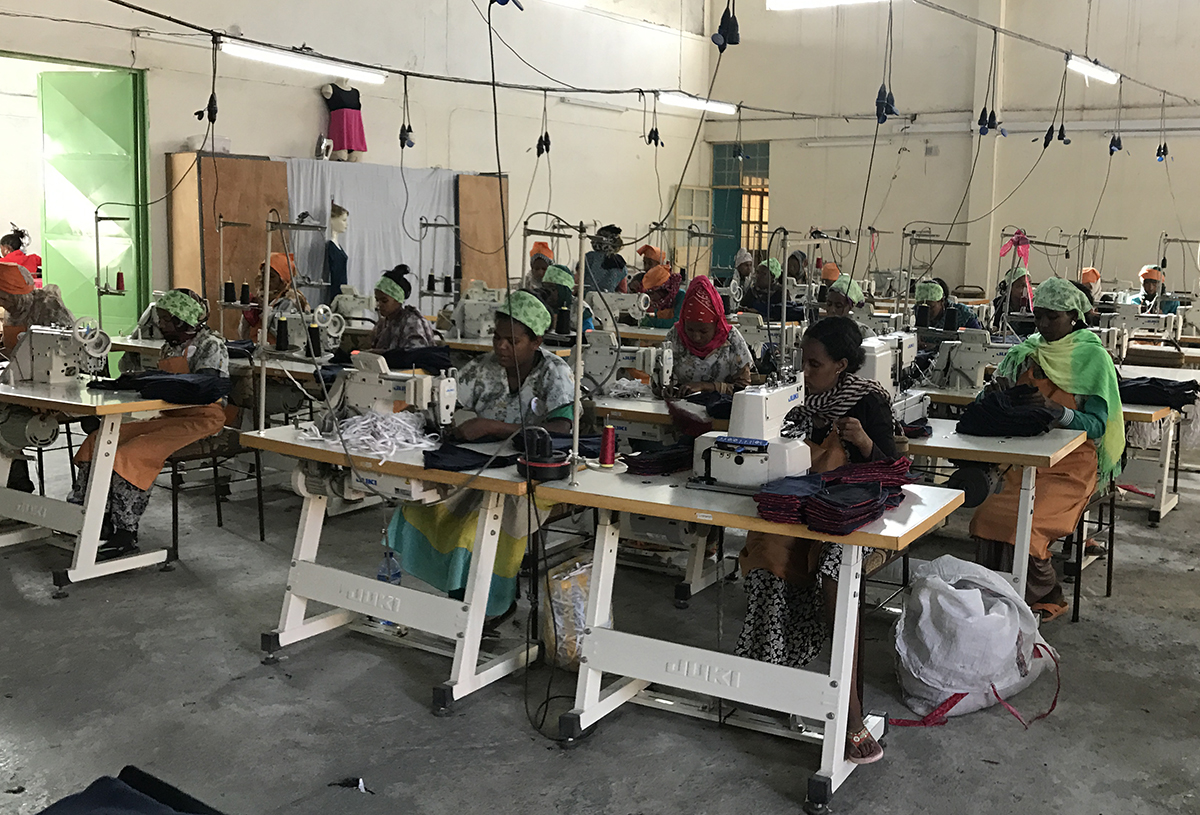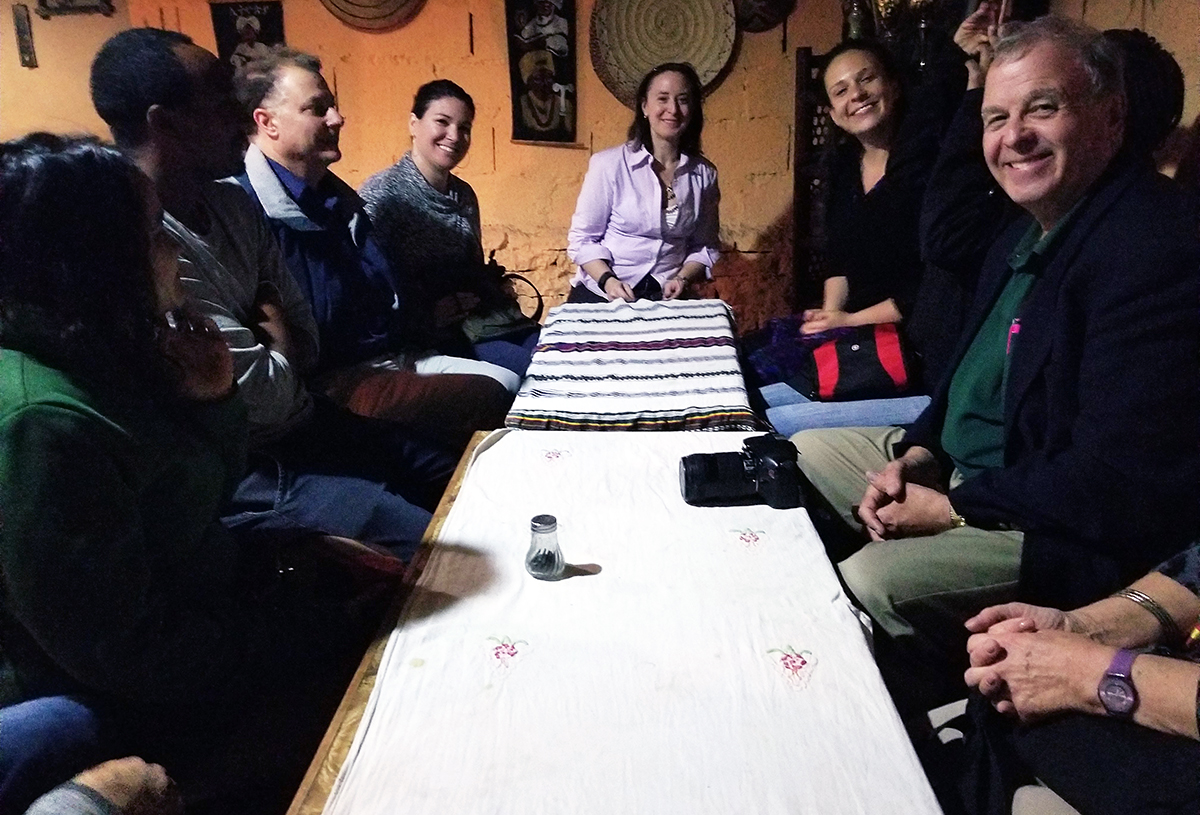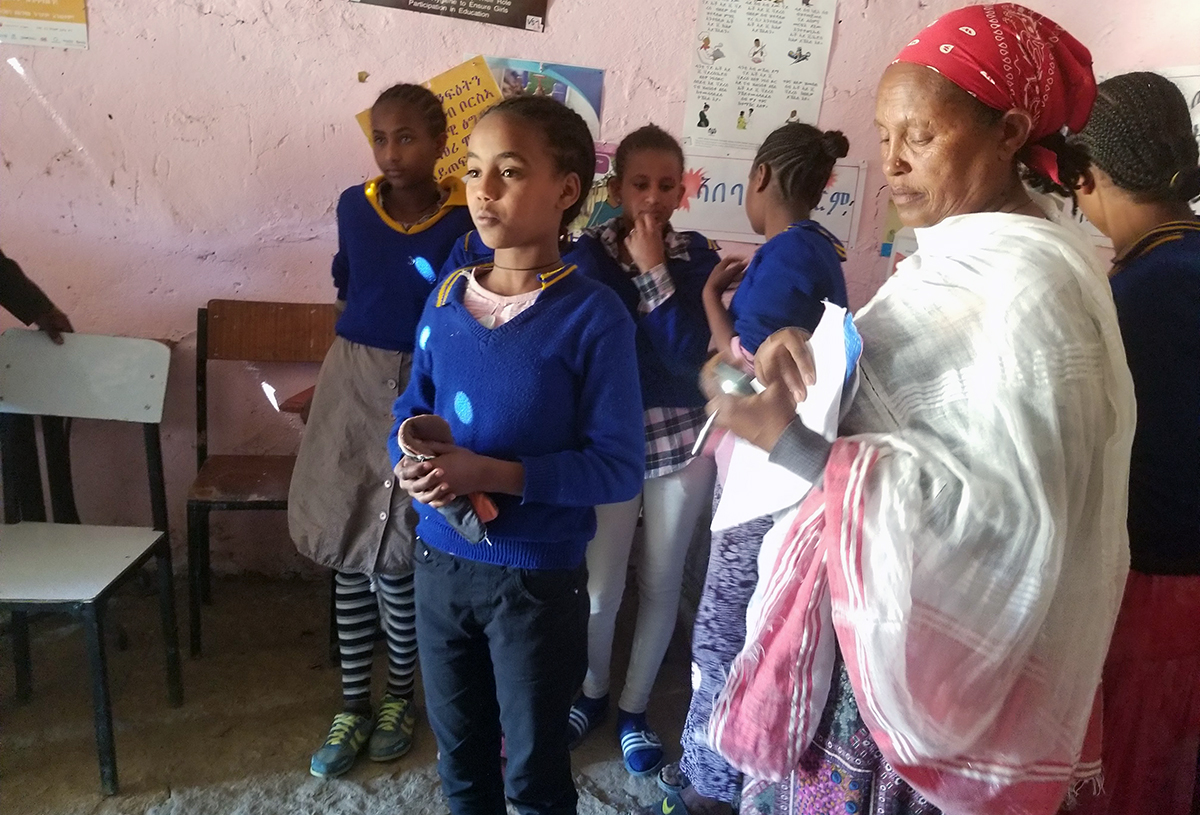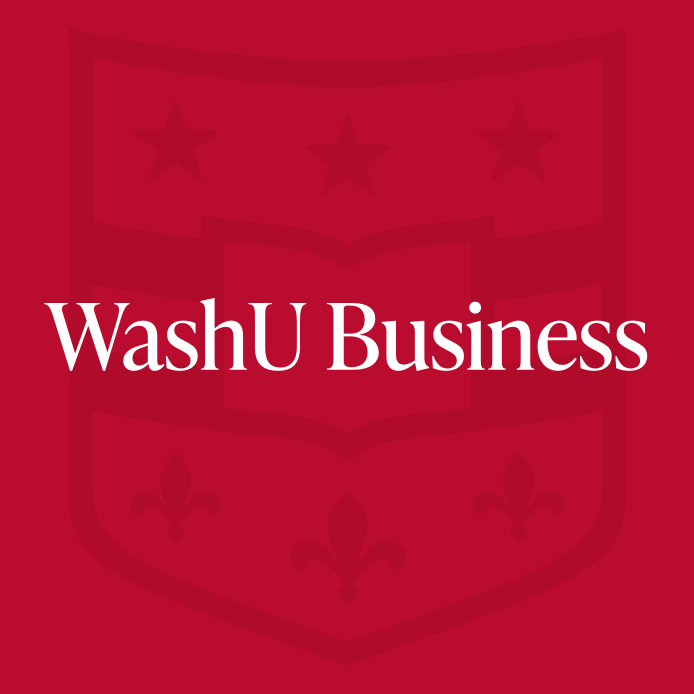Students help nonprofit fight Ethiopian taboo: Part II
- January 29, 2018
- By WashU Olin Business School
- 3 minute read

Students in the International Impact Initiative provide real-world, team-based consulting for business leaders in a global setting. This is part two of a look at a student consulting trip to Ethiopia, where MBA students Molly Goldstein, Brenna Humphries, Paul Dinkins, Jerrod Anderson, and Raisaa Tashnova worked with US-based nonprofit Dignity Period. You can read Part One here. Raisaa Tashnova writes about the team’s experience.
Our first destination in Mekelle, Ethiopia, was the factory where the reusable sanitary pads are produced. A traditional welcome of carefully laid palm leaves guided us from the gate of the factory complex to the main building. There, we found more than 50 women working in a neatly organized production floor.
It was impressive. Since its inception nine years ago, Mariam Seba Sanitary Products Factory has grown into a well-organized, mid-sized production facility. Many of the employees have worked there since the beginning.
As her first employees in the factory started their families, founder Freweini Mebrahtu started a day care center in the factory complex to accommodate new mothers and allow them to continue working. An unexpected delight was our visit to the day care center, where seven tiny inhabitants looked at us intruders in awe as we “oo-ed” and “ah-ed” over them.
On another day, to understand the full value chain of the Dignity Period project, we visited two of the project schools in the nearby city of Wukro. Each of these public schools had a “Gender Office” where students could lie down in a rest corner—a cool, inviting, curtained-off segment of the room reserved for the girls. The facilities were amazing for us to see. But what took the prize for the day were the students themselves. Thanks to Dignity Period’s education and intervention, the students were confident and strong as they told us about the positive impact the sanitary pads made in their lives.
Over the next few days, we set off to find more opportunities for Mariam Seba Sanitary Products Factory and Dignity Period to expand their reach and impact in Mekelle and all northern Ethiopia. To design a commercial distribution network, we needed to understand the competitive landscape, so we set out to research available brands of menstrual pads and their prices in the local markets.
We uncovered the dominance of Chinese manufactured imports in the markets and the high prices for low quality, disposable products. There definitely was opportunity to introduce a higher quality, locally manufactured product in the market.
In our week of exploration in Ethiopia, we gained more from this project than ever imaginable—for us as students, but more importantly, for our clients. We did not only learn about doing business in Africa, but also about education and the extensive healthcare network of the country.
We met with people from diverse industries—from nonprofits to business to psychology and healthcare—and came back with a holistic understanding of how Ethiopia works.
We learned to look beyond the obvious for inspiration and to be inquisitive as we shifted our expansion plan from a traditional retail market route to the healthcare channel route. In the process, we helped empower our clients to think differently and gave them what they wanted most from this engagement: hope.
Students interested in learning more about the Center for Experiential Learning’s Practicum experience can find information on the CEL’s Website.
The International Impact Initiative
Students in the International Impact Initiative provide real-world, team-based consulting for business leaders in a global setting.



Media inquiries
For assistance with media inquiries and to find faculty experts, please contact Washington University Marketing & Communications.
Monday–Friday, 8:30 to 5 p.m.
Sara Savat
Senior News Director, Business and Social Sciences
